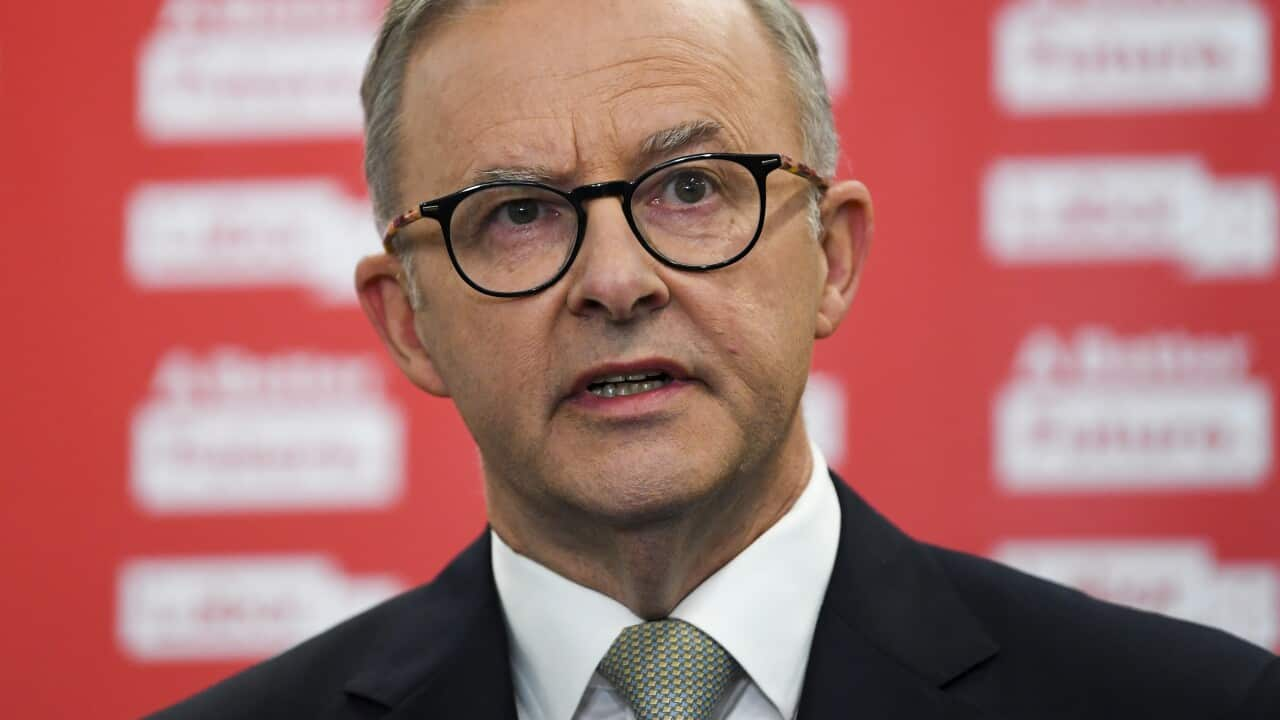The annual rate of inflation has soared to its highest level since 2001, fuelled by record petrol prices and increased dwelling construction costs.
The consumer price index (CPI) surged by 5.1 per cent over the past year — up from 3.5 per cent — and rose 2.1 per cent for the March quarter.
Underlying inflation — which smooths out volatile price swings and is more crucial to the interest rate outlook — jumped 1.4 per cent to 3.7 per cent for the year.
It is the first time the underlying rate has been above the Reserve Bank of Australia's 2 to 3 per cent target since early 2010.
The result could put pressure on the RBA to lift the cash rate from a record low 0.1 per cent when its board meets next Tuesday.
The RBA has previously said it wants to see a meaningful rise in wages before it takes action.
But global inflation is also on the move, and so are other central banks, making the case for a move by the RBA sooner rather than later.
"The only real argument for delay now is the current federal election - as was last the case in 2007, this is another good opportunity for the RBA to again demonstrate its independence," BetaShares chief economist David Bassanese said.
A rise in the cash rate will force banks to raise borrowing costs for households and businesses.
"Annual CPI inflation increased to 5.1 per cent in the March quarter, due to higher dwelling construction costs and automotive fuel prices," the ABS report read.
New dwelling prices have recorded their largest rise (up 5.7 per cent) since September 2000, following the introduction of the goods and services tax (GST). Price rises were driven by high levels of building construction activity combined with ongoing shortages of materials and labour, according to the report.
"Automotive fuel prices rose for the seventh consecutive quarter, resulting in the strongest annual rise since the Iraqi invasion of Kuwait in 1990," the report read.
The automotive fuel series in the CPI reached a record level in the March quarter due to an oil price shock caused by the Russian invasion of Ukraine, paired with ongoing easing of COVID-19 restrictions strengthening global demand.
'People now living in cars'
Cassandra Goldie – CEO of Australia Council of Social Services (ACOSS) – said rising inflation was having a devastating impact on the lives of low-income earners.
"For people on very low incomes, and there are about 2.4 million people surviving on less than $70 per day, many on that $46 per day JobSeeker payment, are absolutely crushed by what's happening out there with particularly the increase in rents," Ms Goldie told ABC News on Wednesday.
"Nationally, we've been seeing increases of up to 20 per cent in regional Australia and in cities about 14 per cent since the beginning of the pandemic."
Ms Goldie said ACOSS is worried about people facing evictions due to the increasing cost of living.
"We are worried about people now living in cars. That is the reality of what's happening. We know that. And that food is definitely becoming a discretionary item for people with the least.
"We've seen over a million people coming to food banks around Australia."
Ms Goldie said the government should lift the rate of income support to at least $70 a day.
"These figures today should really trouble us all with in terms of people on those very low incomes. And, of course, wages growth is not where it should be either," she said.
'Most vulnerable people have largely been forgotten'
More than three million Australians living in poverty desperately need additional support to survive as surging inflation puts household necessities out of reach, according to the St Vincent de Paul Society.
St Vincent de Paul national president Claire Victory said ballooning household costs come during an election where the most vulnerable people in the community have largely been forgotten.
"This neglect was shown by the brutal decision of both major [political] parties to leave JobSeeker at $46 a day, which holds recipients well beneath the poverty line and exposed to rising cost of living pressures," Ms Claire said in a statement on Wednesday afternoon.
"Expecting people to survive on $46 a day is cruel. It demonstrates a lack of understanding, or care, for people doing it tough and the growing challenge of making ends meet as prices for basic goods surge."
Ms Victory said whichever party that wins government next month will be forced to urgently address this issue unless they want to preside over a ballooning poverty crisis.
She said caution from both parties about increasing the national debt was understandable, which is why the St Vincent de Paul Society had commissioned modelling to demonstrate budget-neutral options available to fund changes that it says would release Australians from poverty en masse.
"Our research shows Australia can easily fund a significant boost to JobSeeker, alongside an increase in Commonwealth Rent Assistance, by making simple and affordable changes to our tax and welfare system," Ms Victory said.
"The only problem is we lack political leaders with the courage to countenance such a plan.
"Our modelling shows you could release over a million Australians from poverty through minor changes to capital gains tax and superannuation tax that would only marginally affect the very highest income-earners. Australia contains both incredible wealth and heartbreaking poverty. Our incapacity to fix one with the other is a failure of politics, not a budgetary restraint," Ms Victory said.
Treasurer says Australia is in 'a volatile economic environment'
Treasurer Josh Frydenberg said the release of inflation figures was a reminder to Australians about "the importance of strong economic management".
"Today's higher inflation numbers are a reminder to Australians that we are living in a ... volatile economic environment," Mr Frydenberg told reporters on Wednesday.
Mr Frydenberg was asked whether wages growth would ever catch up with inflation.
He said Australia was also experiencing a tight labour market, which would "put upward pressure on wages", and the country was "not immune from the international pressures driving up inflation".
"Today’s inflation numbers are a reminder to all Australians of the importance of strong and effective economic management," the treasurer said.
'Tripple whammy'
Labor’s Treasury spokesperson Jim Chalmers accused Prime Minister Scott Morrison of presiding over a “triple whammy” of cost-of-living pressures including stagnated wages, soaring inflation and the prospect of an interest rate rise.
The Reserve Bank is due to meet on Tuesday to decide whether to raise the official cash rate from its historic low of 0.1 per cent.
“The Reserve Bank governor has said for some time now to expect that interest rates will rise no matter who is in office,” Mr Chalmers said on Wednesday.
“And clearly after today’s incredibly high inflation number, there’ll be more speculation about a rate rise next week. This is the triple whammy that Scott Morrison has presided over: wages going backwards in real terms, cost of living going through the roof and now an interest rate rise as well.”
Additional reporting by AAP.












